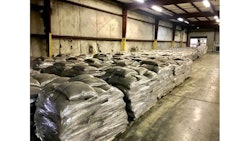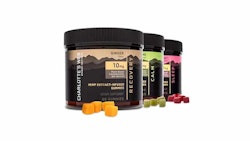
Amidst a national push for a regulatory framework and more oversight in the cannabidiol (CBD) industry, the Minnesota Hemp Farmers & Manufacturers Association has uncovered issues in local products, highlighting the urgent need for regulations.
In collaboration with Confidence Analytics, the association has tested 25 products sold across Minneapolis, revealing 64% had CBD concentrations that deviated significantly from the amount indicated on their labels.
The Minnesota Hemp Farmers and Manufacturers Association (MHFMA) tested an array of CBD products, including vape pens, edibles, tinctures, hemp flowers, topical lotions, pills, capsules and more. Of the 25 products tested, 16 had greater than a 20% deviation of CBD content from what the label stated, which the U.S. Department of Agriculture (USDA) classifies as “misbranded.”
Some products contained nearly three times the stated amount, while one of the products had no CBD at all, says Matthew Kaiser, program director of MHFMA.
Additionally, 33% of the products tested positive for pesticides or heavy metals.
“I had become increasingly frustrated with the amount of focus placed on hemp farmers to test for THC compliance, while absolutely no attention was being paid to the unregulated retail market,” Kaiser says in a news release. “While many consumers have fears of unintentional consumption of THC, the real and more concerning problem to public health is the potential for contamination by heavy metals, pesticides, microbials, molds and toxins. Until we have FDA [U.S. Food and Drug Administration] regulation on these products, manufacturers are given little guidance as to how to label their products and can put whatever they want in them without testing for these dangers to public health.”
Growing Need for Regulations
The results of the study are consistent with findings from studies taken prior to hemp’s legalization in 2018.
While the Agriculture Improvement Act of 2018 (the 2018 Farm Bill) legalized hemp cultivation and production, it did not legalize the sale of CBD products. Those remain largely illegal, though unregulated, by the FDA.
The lack of regulations has raised concerns on both local and national levels. Industry participants say the lack of regulations not only stifles the industry, but also puts consumers at risk.
It’s prompted some CBD companies to take matters into their own hands, answering the FDA’s call for more research in order to create industry regulations. Seven CBD companies, along with a research company, recently announced they’ll be conducting a nationwide study to test CBD’s prolonged effects on the liver.
Meanwhile, some groups are taking action on the local level. The New York Cannabis Growers & Processors Association, for example, recently put out a call to the state’s department of health to create a framework for regulating the industry in New York.
Following MHFMA’s study, the association says it is actively working to form a retail and consumer safety committee with a voluntary board of manufacturers and retailers.
The committee is aiming to improve transparency by conducting third party testing, supporting the development of industry standards and creating a seal of approval for the retailers and producers who meet established standards. The organization says it’s also looking into building out a retail cooperative in association with the committee to provide discounts for group analytics testing and bulk branding, as well as banking, legal and insurance services.
“The boom of the CBD and hemp industries provide huge opportunities to companies and consumers alike — especially in Minnesota” Kaiser says. “But the results of these tests show how dire the need is for regulatory oversight and comprehensive testing to protect consumers and the brands that put safety first. If these inconsistent CBD products were being regulated by the USDA they would be classified as misbranded. The state has failed to take the lead here, so we’re forming this committee to give Minnesotans — whether they’re customers or business owners — an edge in the CBD industry.”
Organizations and companies interested in joining the oversight committee can contact Kaiser at [email protected]
























